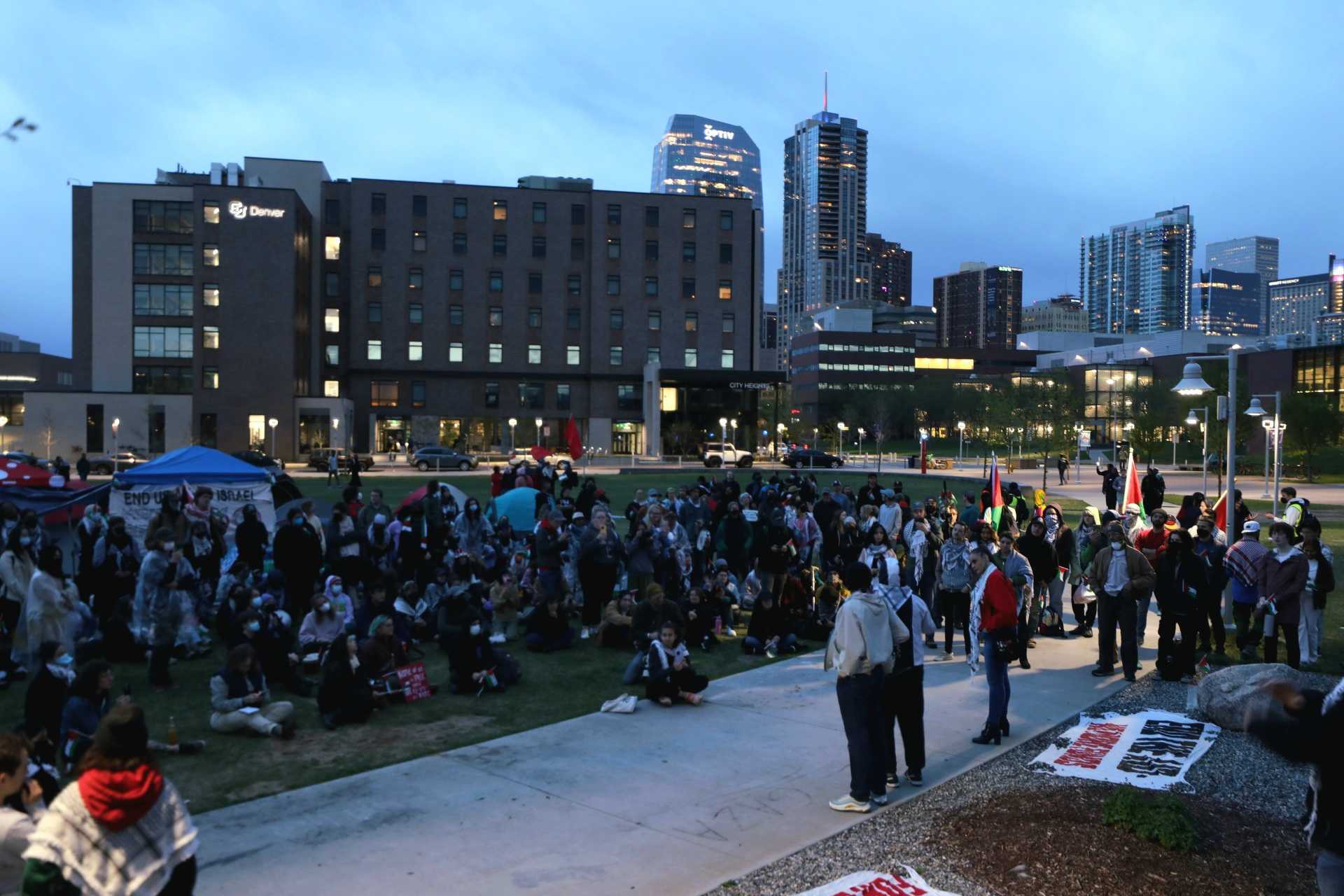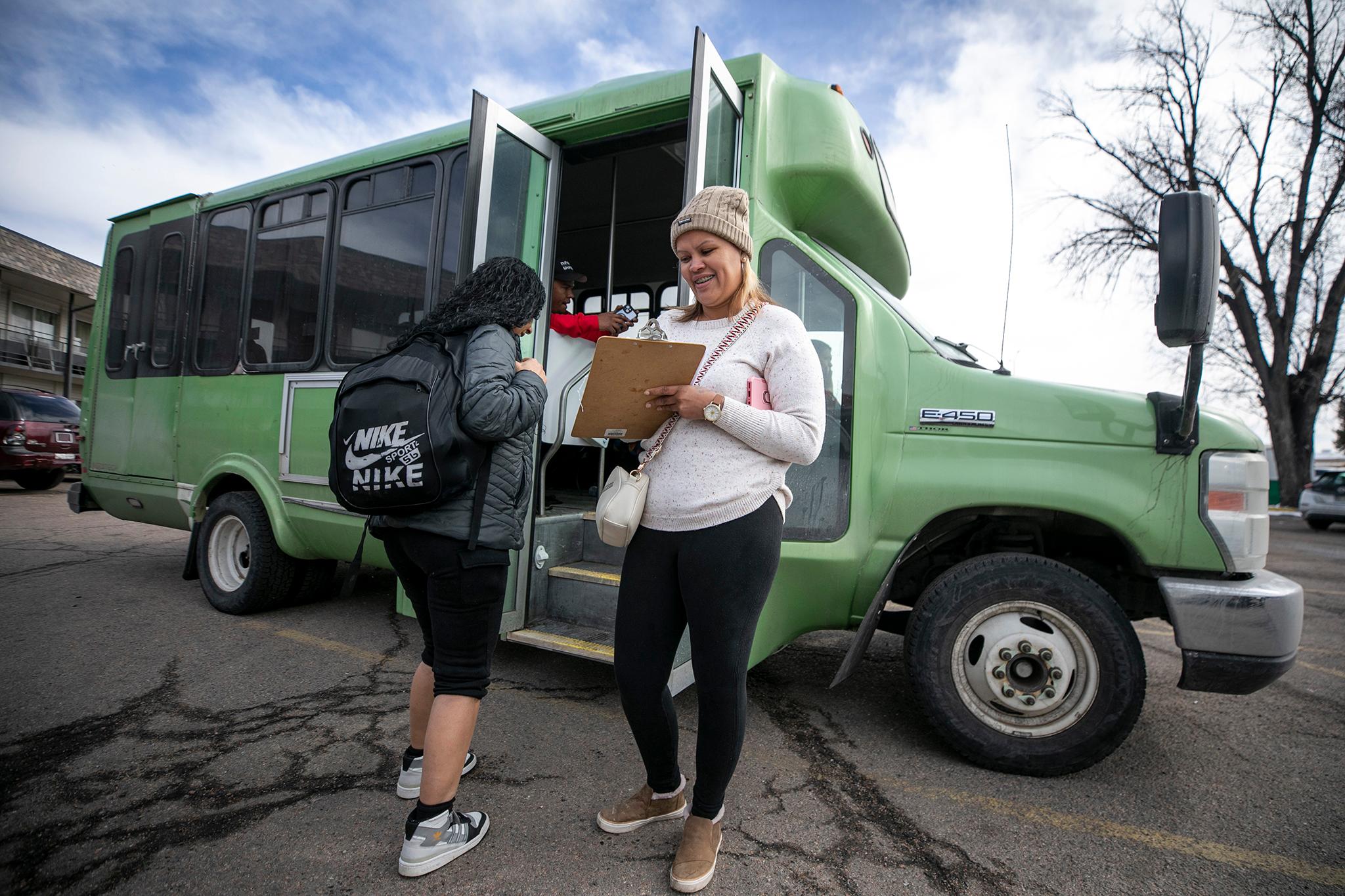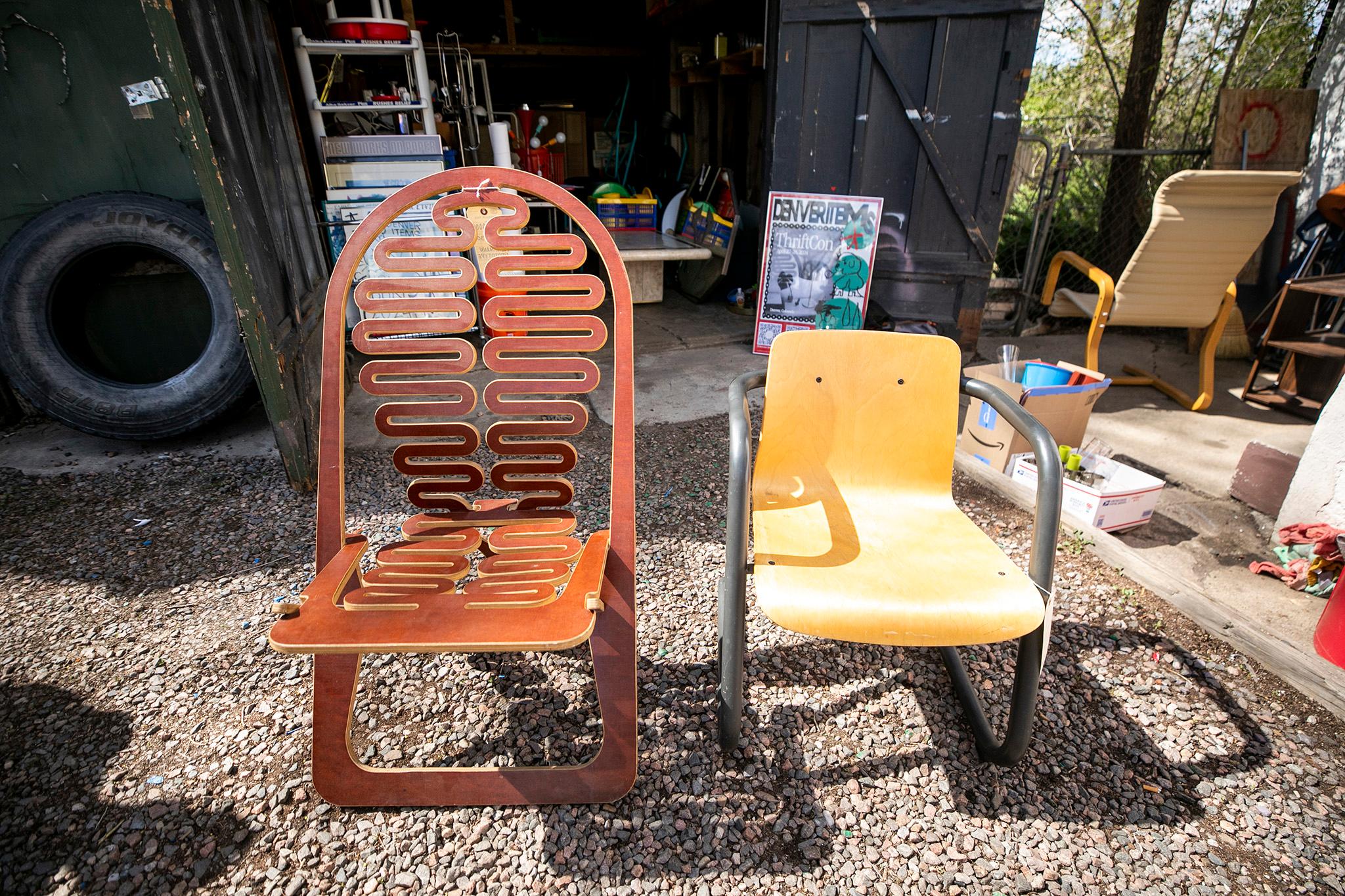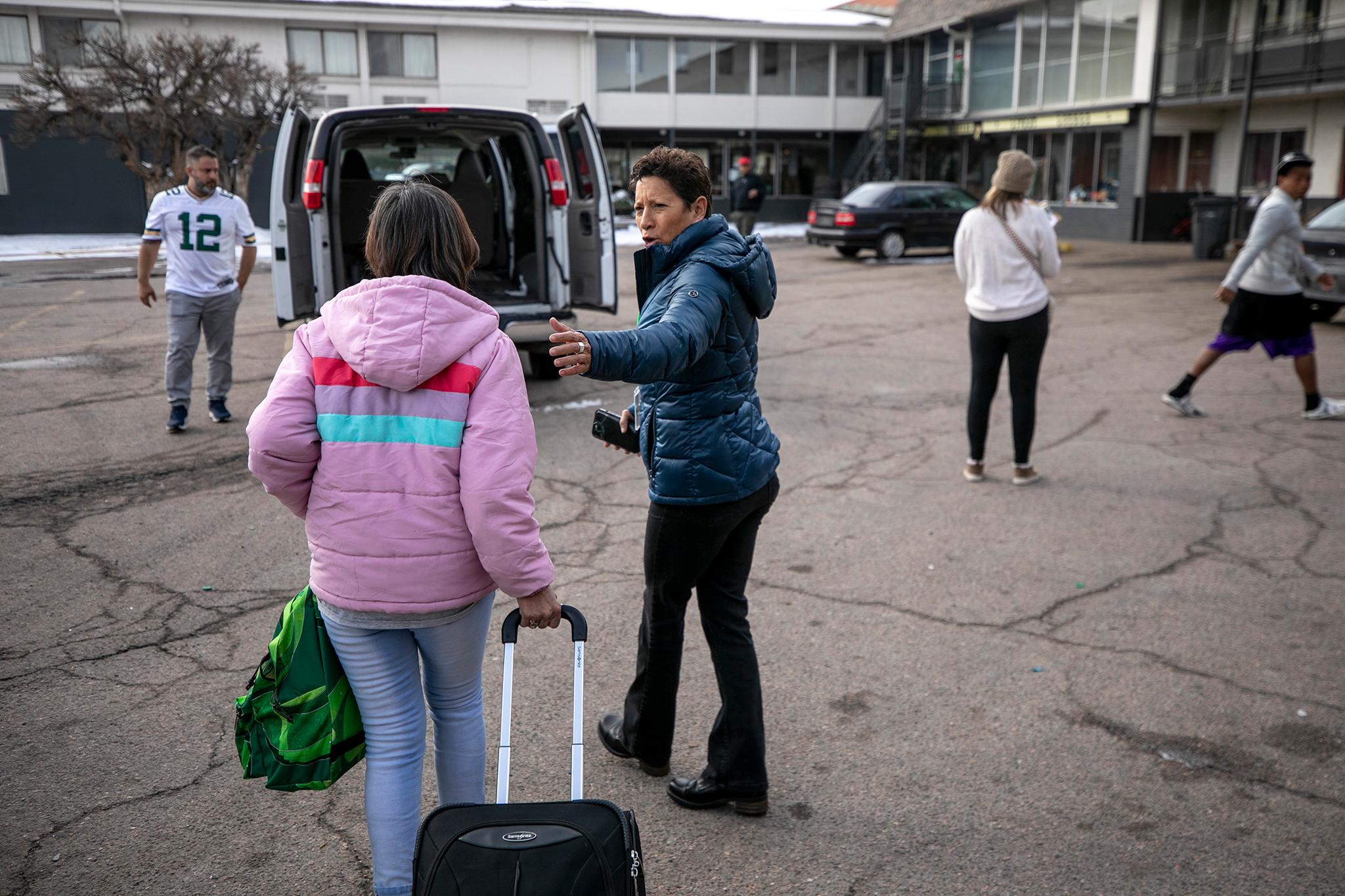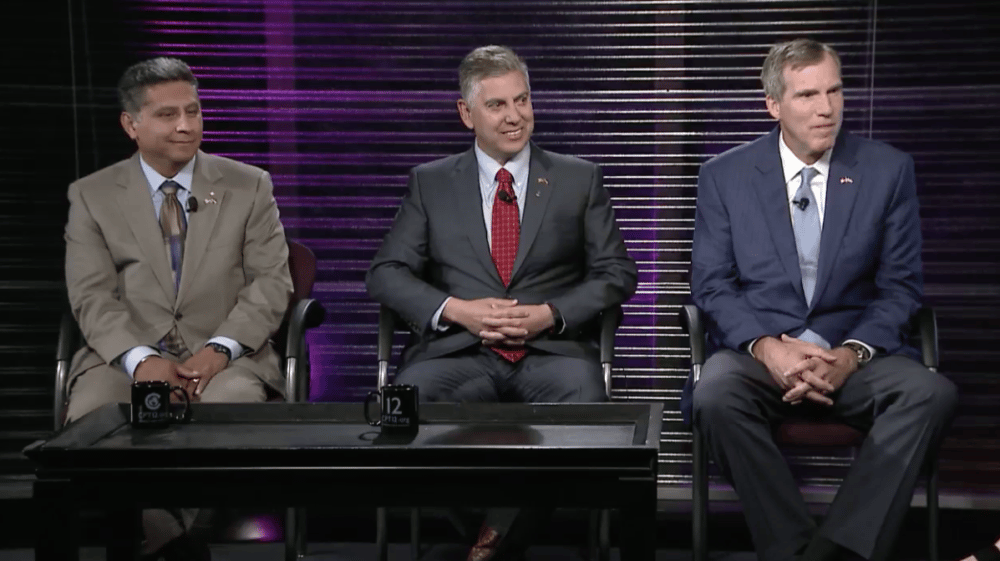
Three Republican gubernatorial candidates squared-off Wednesday during a debate hosted by Colorado Public Television and CBS4, discussing the state of the party, healthcare, transportation and President Trump’s policy.
The three participants included former state representative and businessman Victor Mitchell, former Parker Mayor Greg Lopez and businessman Doug Robinson. State Treasurer Walker Stapleton did not attend.
All three have work to do to catch up to Stapleton, the party frontrunner and most well-known candidate. Without him present, the debate gave Mitchell, Lopez and Robinson a chance to focus on their own policies and ideas, though it didn’t stop them from occasionally calling out one another during the one-hour debate (which you can watch here).
The first question concerned national policies: Are there any polices from President Trump they disagreed with?
Robinson said he wasn’t a fan of the tariffs Trump’s Administration placed on steel and aluminum imports from Europe, Mexico and Canada. He said they aren’t good for Colorado, affecting its farmers and the state’s beer industry. An area of Trump’s policy Robinson said he supported was the tax plan he implemented.
“I look at the tax cuts, that’s been very good for Colorado families,” Robinson said.
Mitchell, who like Robinson has an extensive business background, also said he wasn’t a fan of the tariffs.
“We basically don’t have a manufacturing base here in Colorado ... largely because of the Gallagher Amendment,” Mitchell said, referring to the state constitutional provision that affects how much residents pay in property taxes.
Lopez said he couldn’t really find any policies he didn’t like — “I think he’s doing a great job,” Lopez said about Trump — but said he would like to see a different approach to NAFTA and dealing with Canada and Mexico.
All three candidates have similar ideas on how to approach healthcare reform in Colorado. They disagree on how to address the state's transit woes.
Lopez said that healthcare in the state is unaffordable and he would like to see a free-market approach. He said there’s no such thing as “affordable healthcare” in the rural corridor and said he would encourage more competition among providers to benefit the consumer.
“I think it’s time we ask the hard questions,” Lopez said. “Why is it costing so much for us to be able to have good healthcare? And I think until we have that debate and we have that dialogue, we’re always going to be chasing our tail because we’re not having the right discussion.”
Mitchell, who helps support a rural health clinic in southern Virginia, said that Medicaid wasn't designed for the masses and provides “low-quality” and expensive care. As governor, Mitchell said he would remove the state from the Colorado health exchange and end Medicaid expansion.
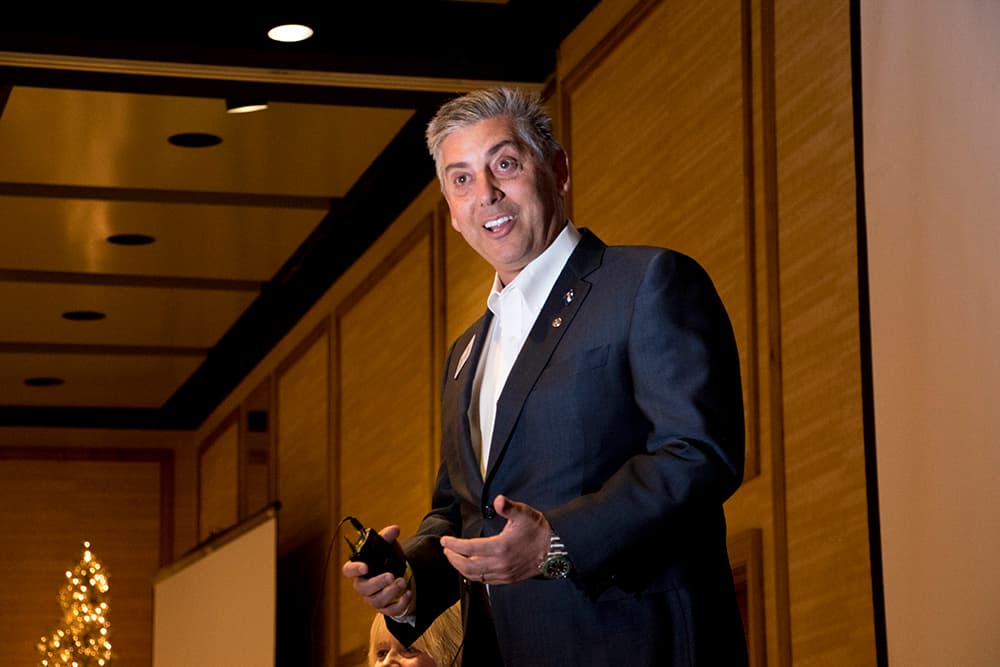
One way Mitchell suggested the state could help provide primary care is creating “a committee of basically, retired nurses and doctors and really encourage innovation in healthcare where maybe a nurse practitioner clinic would be put forward or a physician assistant clinic, mental health professional clinic,” that would provide primary care without insurance.
Robinson said healthcare costs are breaking family, business and state budgets. He would support a statewide exchange and request providers offer more information about their services.
“I have lost faith in Washington’s ability to solve it,” Robinson said. “They’ve had 30 years. Give it to the states. And the key is price transparency and more competition in this marketplace.”
On transportation, Robinson said building infrastructure is one of the government’s fundamental responsibilities. He said he would borrow money to fix the state’s road (and perhaps cut back on traffic) similarly to what former Gov. Bill Owens did. He disagreed with Mitchell’s statement that CDOT doesn’t have enough money to fix the problem.
“It’s about $3.5 billion that we need to really make an immediate impact on our roads,” Robinson said. “It’s widening I-25 in both directions ... no tolls, no new taxes.”
Mitchell said the way he would handle this issue is a key difference between him and his opponents. He wouldn’t support new taxes or putting the state in more debt.
“CDOT needs fundamental, structural reforms,” Mitchell said. “We can do this. We can fix CDOT. I don’t know what the right amount of money, resources is because we don’t know how much is in waste.”
Perhaps the most unexpected idea for addressing transportation concerns came from Lopez, who said that he spoke to the late Aurora Mayor Steve Hogan about the potential of the state buying E-470. The toll road is owned by three counties and five jurisdictions, Lopez said.
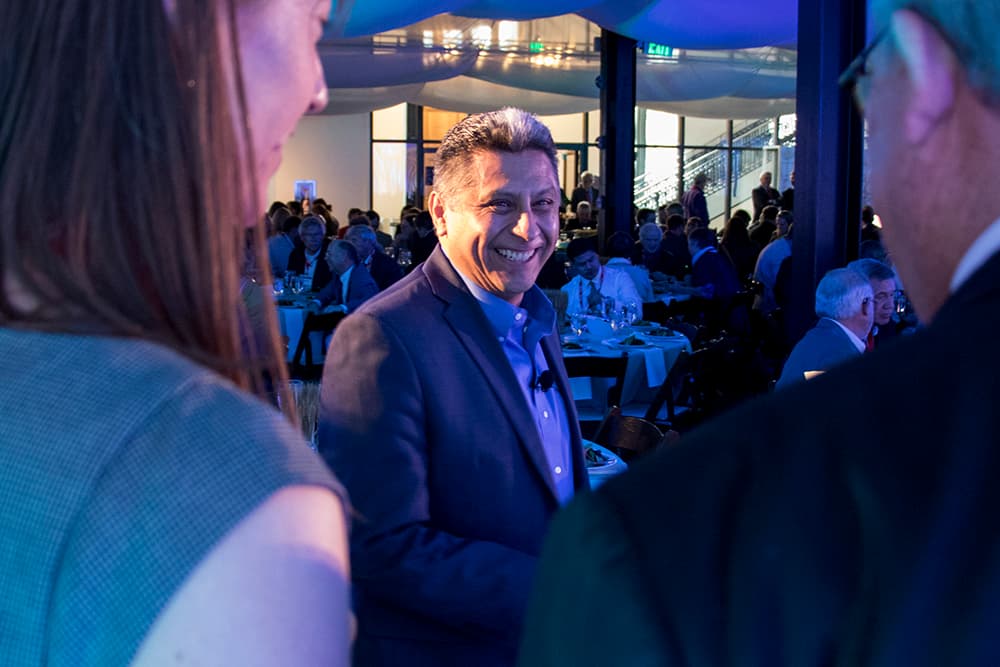
“He asked me, ‘Greg, why would you want to buy E-470?’” Lopez said. “Imagine what would happen if we took the tolls off, and people can actually use it to go around the entire corridor.”
“These are the types of dialogues we need to have in order to solve these issues,” Lopez added.
The absence of the party’s frontrunner led to a conversation about the party’s soul (and some arguments).
Before the debate started, moderator Dominic Dezzutti of Colorado Public Television explained why Stapleton wasn’t there. Dezzutti said said the seven other candidates confirmed a single date within 48 hours of being contacted. The station reached out to candidates a week after each party's assembly.
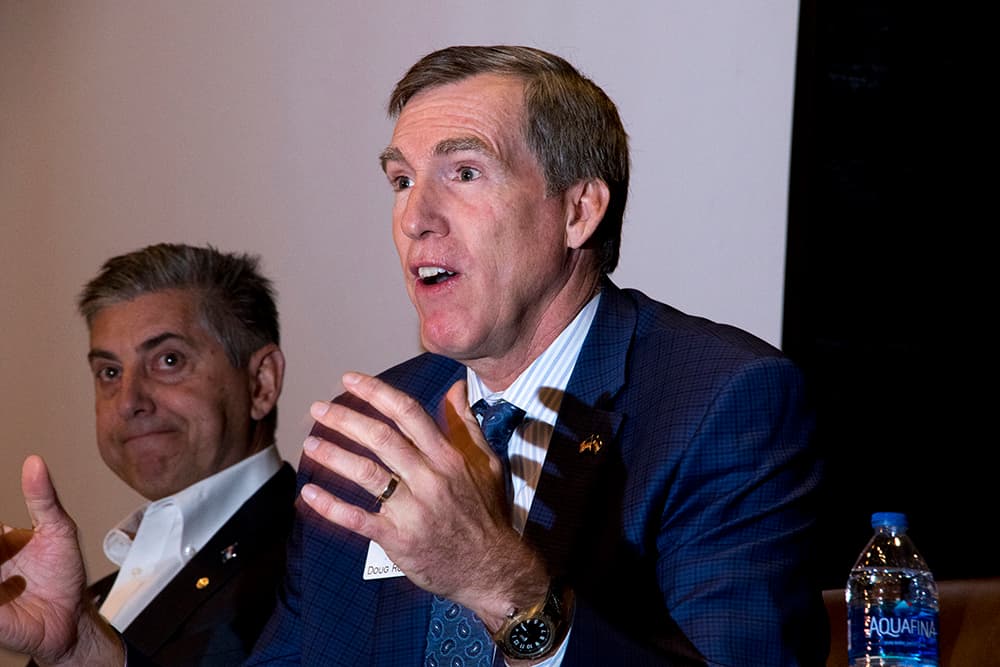
Stapleton's absence led to some discussion about the party, as moderator and CBS4 reporter Shaun Boyd asked the candidates present if they felt the GOP establishment had “anointed” Stapleton.
“Where’s Walker?” Robinson said. “This is the question that we need to be asking, right? He’s not here. I’m not surprised. He doesn’t show up at half of our events. We have worked, all of us, the state ... he’s not there.”
Mitchell said he’s the only clear, outsider businessman in the race, a title that was quickly challenged by Robinson, who repeatedly referred to Mitchell as “Representative Mitchell” and pointed out that he has previously held office (Robinson has not).
Mitchell reminded Robinson comes from a family with a deep political legacy (Robinson is Mitt Romney’s nephew). In response, Robinson said he was tired of, “the attack on my family.”
“We don’t choose our family that we grow up in,” Robinson said. “I grew up in this family, it isn’t some dynasty.”
More broadly, Robinson said Republicans have better ideas than Democrats.
“They have a vision for Colorado that is more taxes, it’s more government control, it’s just a very different state than the one I want to live in,” Robinson said.
Overall, Mitchell said the race has been fair and said he trusts the voters. He said he doesn’t see a division within the party, which he said can sometimes be played up by the media (and by ads released by, uh, Mitchell).
“Obviously, there’s certain party establishment people that love Walker Stapleton because basically they can give him a tremendous amount of special interest money and they feel he’s more predictable, they can probably control him better,” Mitchell said.
Lopez said there’s a sentiment that the establishment picks a person they think can win the election. But it’s candidates who are visiting with residents.
“And I feel it,” Lopez said. “But you know what, I don’t pay attention to it. I don’t pay attention to it, because it’s the voters. They don’t speak for the voters.”
All four Republican candidates for governor will debate on KTVD channel 20 Thursday night at 7 p.m.

